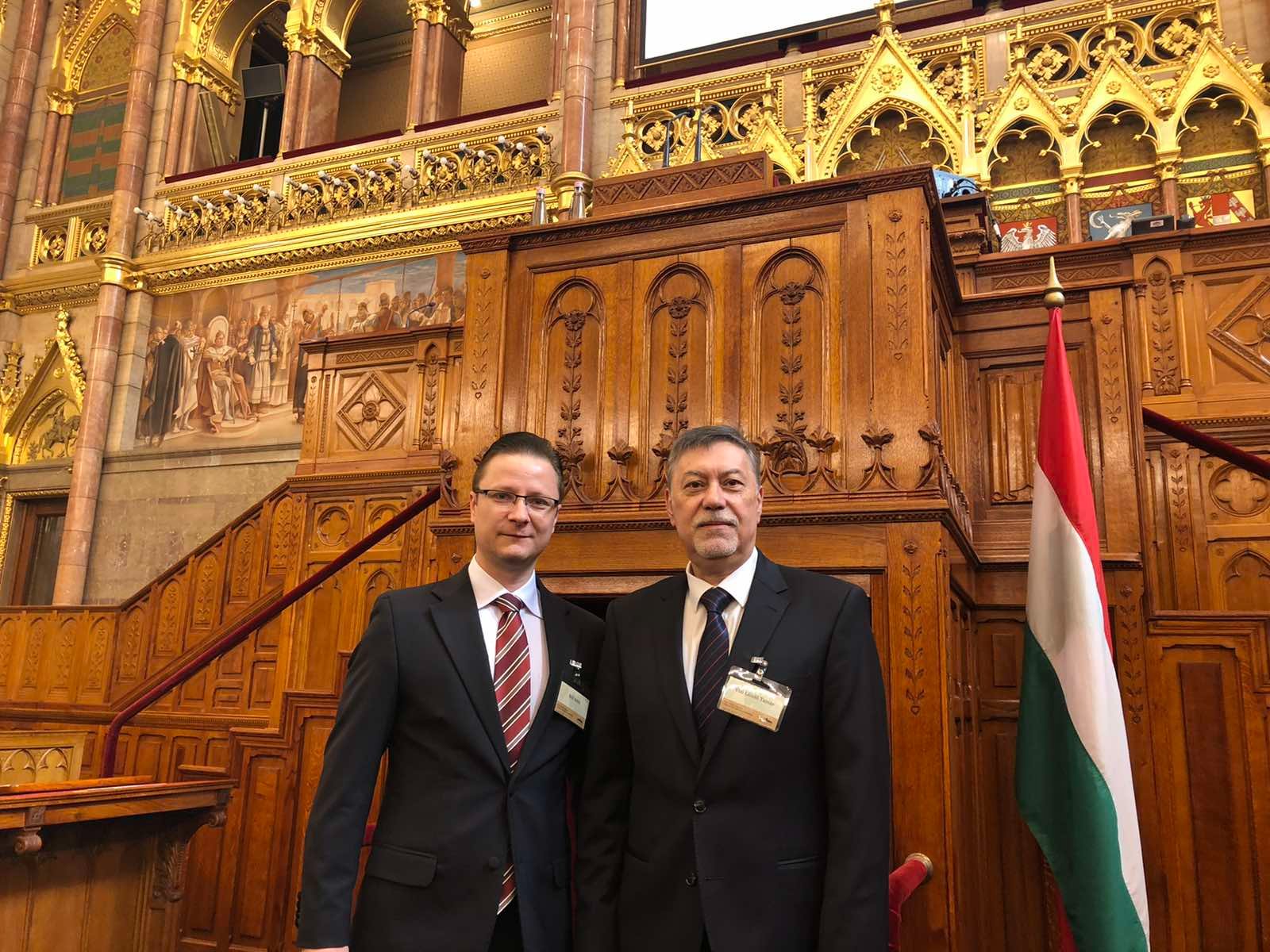A cruelly sad duty
Dr László Tamás Vizi, Deputy Director General for Research and our researcher Artúr Köő participated at a history conference titled “1920 - On a forced path. The ratification of the Trianon peace treaty". The Directorate for Public Collections and Public Education of the Office of the National Assembly of Hungary organised the conference in cooperation with the Hungarian Historical Society on 2 June 2022 in the chamber of the Upper House of the Hungarian Parliament.
The speakers and the audience were welcomed by Director István Bellavics, who conveyed the welcoming remarks of László Kövér, Speaker of the National Assembly and main patron of the event.
Afterwards, ten scientific lectures were presented under the chairmanship of Róbert Hermann, President of the Hungarian Historical Society.
On behalf of the Institute of Hungarian Research, László Tamás Vizi, Deputy Director General of Science, and Artúr Köő, Research Fellow of the Institute, delivered their presentations.
The first presentation was given by László Tamás Vizi on "The Hungarian ratification of the Trianon Peace Treaty". László Tamás Vizi explained that Hungarian ratification process can be divided into two major phases. The first lasted from the signing of the peace treaty on 4 June 1920 until the submission of the treaty to the National Assembly on 26 October, when the Hungarian government tried to postpone the ratification to as distant a date as possible in order to gain time, but eventually had to submit it on 26 October due to pressure from the Entente. The second phase lasted from the time of the submission of the treaty until its entry into force on 26 July 1921. Mr Vizi described in detail how the bill was discussed by the committees of the National Assembly and debated in the National Assembly. He highlighted the role of Prime Minister Pál Teleki, Foreign Minister István Csáky and Albert Apponyi, and analysed their speeches. He named the deputies who opposed the ratification and described the "cruelly sad duty" under which the National Assembly adopted the peace treaty on 15 November 1920. In his speech, he made a special reference to the part of Teleki Pál's speech when the Prime Minister, stressing his sole responsibility, initiated the impeachment of himself, which the National Assembly did not even discuss. Finally, he spoke about the exchange of the ratification documents in Paris on 26 July 1921, which brought the Treaty of Trianon into force. Act XXXIII of 1921 was published in the Hungarian Law Gazette on 31 July 1921 bordered in black.

In his presentation "The day of the signing and the codification of the Trianon Peace Treaty in the columns of four significant contemporary Hungarian newspapers", Artúr Köő highlighted that the signing of the Trianon Peace Treaty on 4 June 1920 was reported in detail by all contemporary press organs, as well as the way in which the population of the mutilated country protested against the unjust treaty. Artúr Köő called attention to the fact that it is worth looking at the articles in the press of the time, because they illustrate the public mood of that tragic day and decribe the events.
All the newspapers examined, regardless of whether they were pro-government or opposition, called the treaty an unjust diktat with tragic consequences. The writings, which mostly appeared as editorials, invariably condemned the excessive punishment inflicted on the Kingdom of Hungary, while the final message was uniformly a belief in survival, successful change and revision. The newspapers under analysis started to inform their readers about the ratification issue in the autumn of 1920. Initially their aim was to make clear to the society what exactly the ratification of the Trianon Peace Treaty by the Hungarian National Assembly meant and why it was necessary. In order to change the protests and resistance of the population, statements and positions of the most popular politicians and government party representatives were published, the majority of which stated that this necessary procedure should take place as soon as possible in order to avoid retaliation against Hungary, to restart the economy and to resume the previously severed diplomatic relations.